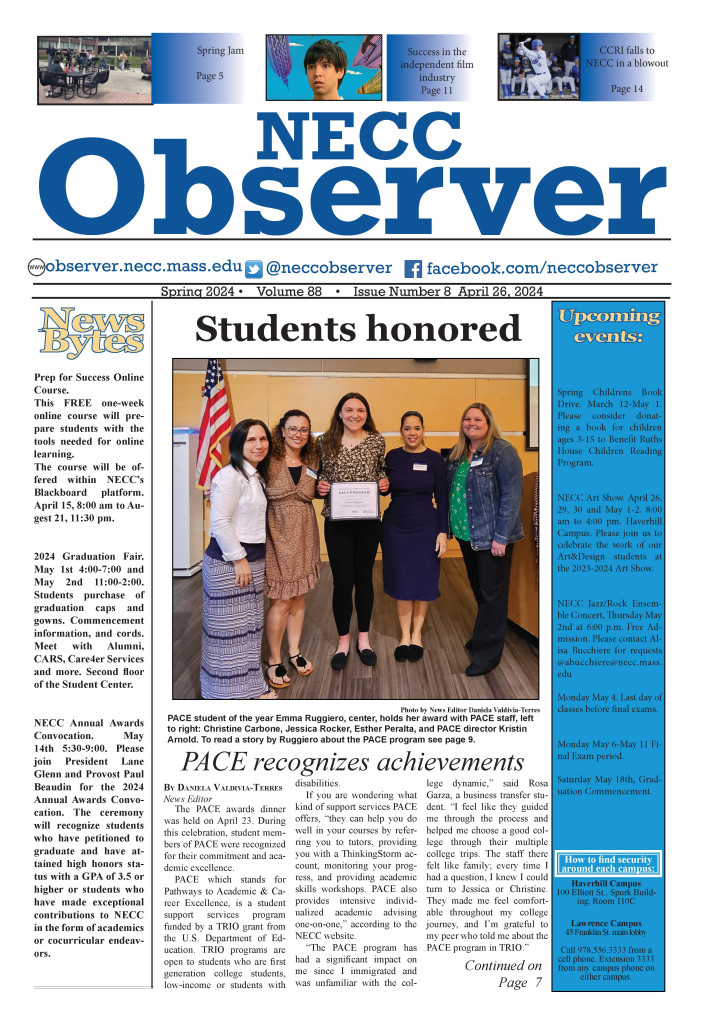Smarthinking is a free online tutoring service available to any student registered at NECC. This service is not staffed by NECC tutors, but is actually a separate business which was purchased by the Tutoring Center. There are over 2,500 certified expert tutors worldwide.
The service has been available at NECC since 2008 and is an effective way for online students or students with busy schedules to find academic support. You don’t even need to register to access Smarthinking. Simply log in with your NECC email and student ID number to get access.
The maximum time students can use Smarthinking for each semester is four hours. This may not seem like a lot of time, but considering that most students use it for essay submissions, it actually lets students submit five essays per semester, each for a 45-minute charge. If needed, you can contact the Tutoring Center when you run out of hours and they will assist you with finding the help that you need.
“In general, the students have been very satisfied with it,” said Lynne Nadeau, the Director of Tutoring Services.
The second most popular feature on the website after essay submission is the Drop-In Tutoring contact. This allows students to chat with a tutor via “whiteboard” to get help on a specific subject. Nadeau suggests that students go in prepared, knowing exactly what they need help with, in order to avoid using up excess time.
The tutoring is offered for a variety of subjects. Algebra, nursing, biology, Spanish, and reading name just a few of the subjects Smarthinking offers tutoring for. Accounting and sciences are among the most popular subjects. Additionally, the website offers links for academic resources. These provide study guides and tutorials for several subjects and don’t use up any of your allowed time. You can also view archives of past study sessions to study for exams.
Overall, Nadeau said she has seen “quite an increase in students who use the services in the past couple years.” She believes this to be a “generational thing,” as more students are enrolling in online classes and spend more time on computers in general.



